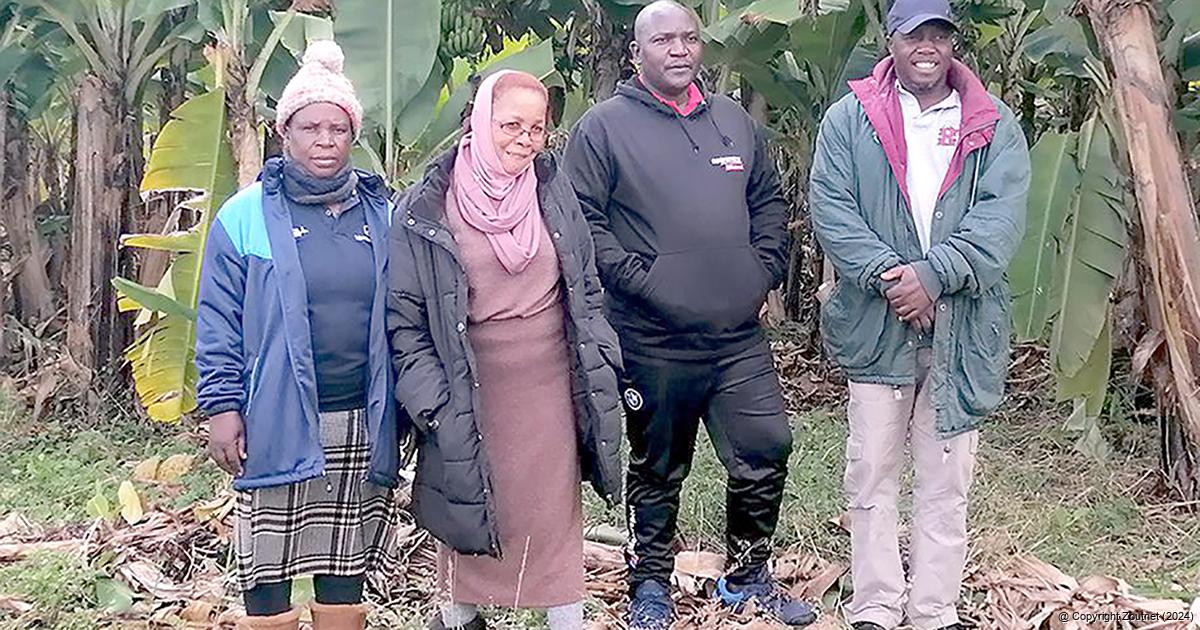

ADVERTISEMENT:

Members of the Masakona CPA. From left to right are Magarethi Rumani, Amelia Mukwevho (deputy chairperson), Nkhagwane Munyai (chairperson) and Stalion Ramukhuba (secretary). Photo: Bernard Chiguvare.
CPAs can be functional, but they need to have proper guidance
News in brief - Date: 11 May 2024
Since 1994, large sections of land in the Vhembe region have been returned to their original owners as part of the land-restitution process. However, many of these lands are poorly managed by often dysfunctional communal property associations (CPAs) tasked with holding the land in trust and managing it.
A non-profit organization, the Vumelana Advisory Fund, is working to rectify the situation and assist CPAs. The NPO runs training programmes and provides the necessary tools to assist CPA members.
According to Mr Peter Setou, chief executive officer of Vumelana, myriad reasons exist why CPAs fail to manage the land properly. These include internal feuds as well as a lack of capacity.
Some of the most common problems that CPAs battle with are non-compliance with their constitution and a lack of operational policies and procedures to guide administration and day-to-day operations. Annual general meetings are often not held, and financial statements are not made available to all members.
“Sustained support and tailored interventions are essential to effectively address the capacity challenges facing CPAs,” says Setou.
Setou added that CPAs should consider partnering with private investors and put their land to productive use. However, private investors are hesitant to partner with poorly governed CPAs. “Through partnerships with private investors, communities can leverage their land holdings to foster economic development. These partnerships enable them to unlock the potential of their land, generate income, create employment opportunities, expose them to markets, and facilitate skills development,” he said.
Setou’s organisation, Vumelana Advisory Fund, developed a CPA support programme designed to strengthen governance among land-reform beneficiaries and within land-holding entities. To guide the assessment and support for CPAs, the organisation has also developed a capacity needs assessment tool (CNAT). The CNAT covers five main dimensions of governance and management to assist in identifying areas for improvement for land reform beneficiaries to enable effectiveness and sustainability. These dimensions are governance, membership services, financial management, administration, and social cohesion.
“Our commitment to capacity building is about ensuring that we enable communities to contribute to poverty alleviation, job creation, economic development, and a sustainable land-reform programme that recognises that land reform is a multi-stakeholder programme that should involve not only the government and the beneficiaries of land reform but private investors and commercial farmers who have over the years accumulated institutional knowledge that can be used to also contribute to transformative change in land reform,” said Setou.

Recent Articles
-

Dirty fight for control over Vhembe FM
26 July 2024 By Victor Mukwevho -

Legendary coach and founder of social club dies
25 July 2024 By Silas Nduvheni -

Hennie Pretorius in die ouderdom van 73 jaar oorlede
25 July 2024 By Andries van Zyl -

A cultural festival for disabled launched
20 July 2024 By Victor Mukwevho
Search for a story:

ADVERTISEMENT


Bernard Chiguvare
Bernard Chiguvare is a Zimbabwean-born journalist. He writes mainly for the online publication, Groundup.
Email: [email protected]

ADVERTISEMENT:

